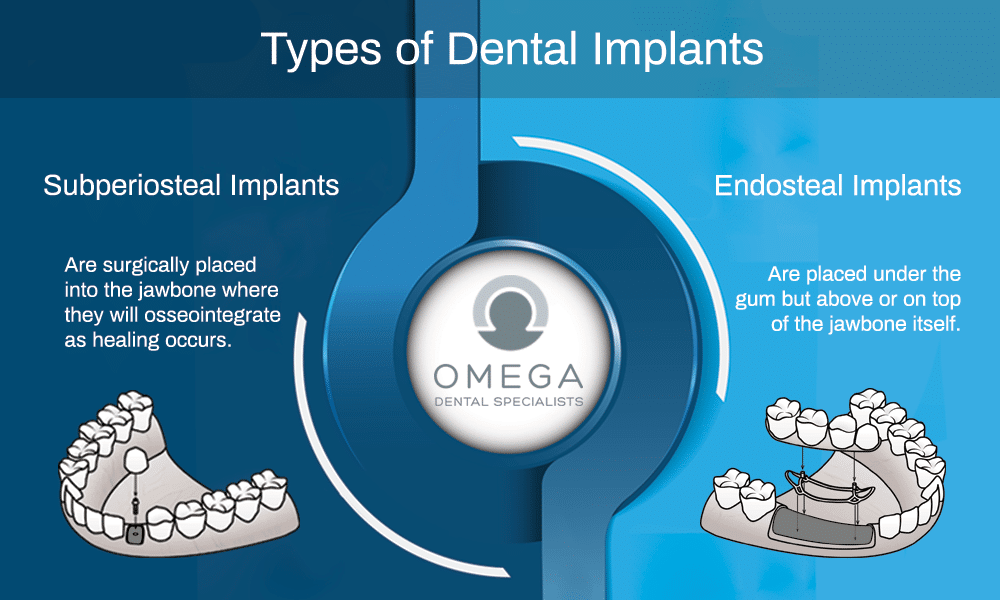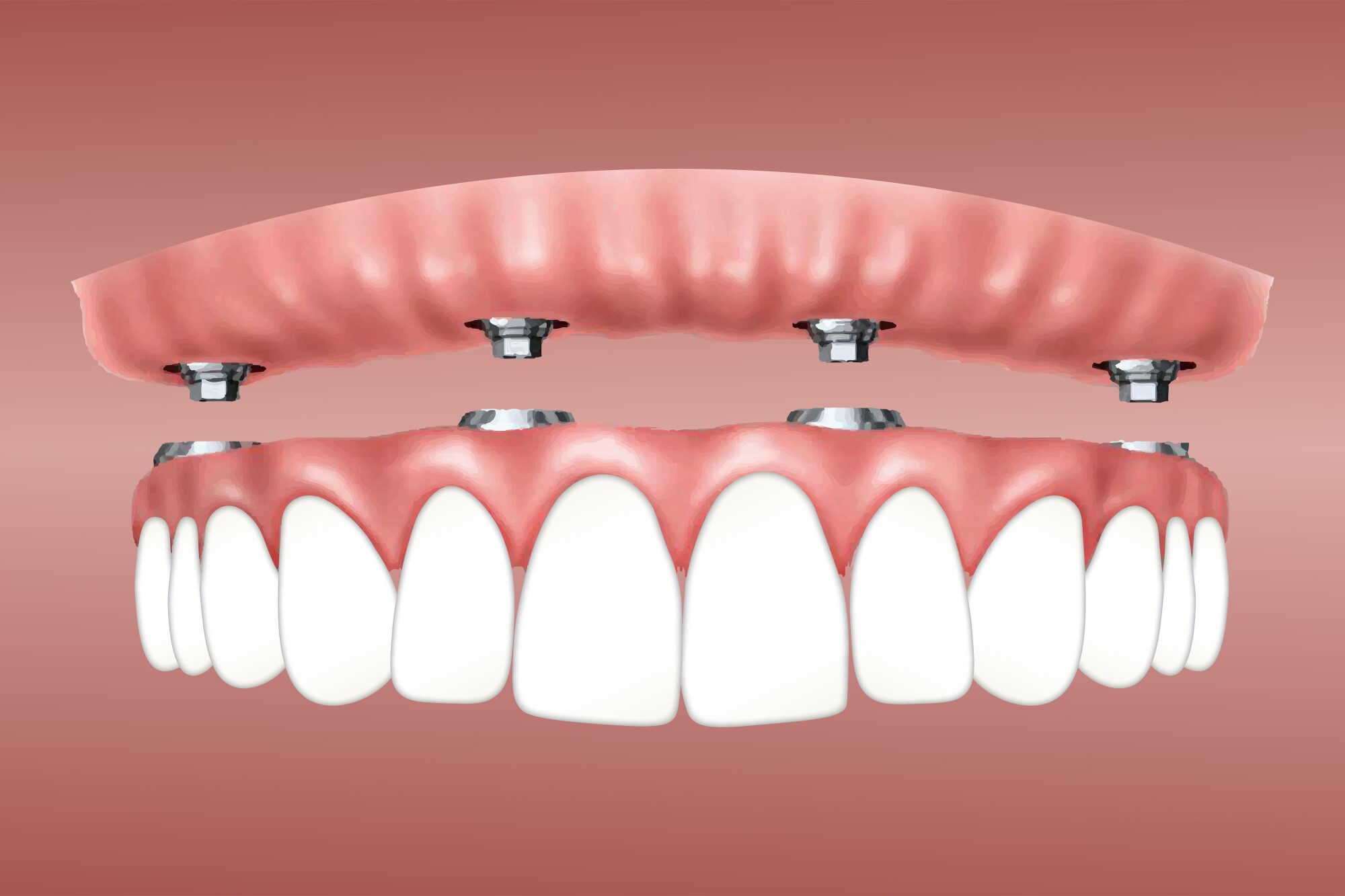A Biased View of Dental Sense
A Biased View of Dental Sense
Blog Article
Dental Sense Fundamentals Explained
Table of ContentsDental Sense Fundamentals ExplainedThings about Dental SenseExamine This Report on Dental Sense10 Simple Techniques For Dental Sense
are medical gadgets surgically implanted into the jaw to recover an individual's capability to chew or their appearance. They provide support for artificial (phony) teeth, such as crowns, bridges, or dentures. When a tooth is shed as a result of injury or condition, an individual can experience complications such as fast bone loss, malfunctioning speech, or adjustments to chewing patterns that cause pain.Oral dental implant systems include a dental implant body and dental implant abutment and might additionally consist of an abutment fixation screw. Dental implant vs bridge. The dental implant body is operatively inserted in the jawbone in area of the tooth's origin. The dental implant abutment is generally affixed to the dental implant body by the abutment addiction screw and prolongs via periodontals into the mouth to support the affixed fabricated teeth
(https://dentalsense.godaddysites.com/f/transform-your-smile)Framework of The Oral Implant System choosing oral implants, speak with your oral provider concerning the potential benefits and risks, and whether you are a candidate for the treatment. Points to take into consideration: Your total health is an important consider identifying whether you are an excellent prospect for dental implants, for how long it will take to heal, and the length of time the dental implant might remain in area.
Smoking may affect the recovery process and decrease the lasting success of the dental implant. The healing process for the implant body might take a number of months or longer, during which time you normally have a short-term abutment instead of the tooth. the dental implant procedure: Carefully follow the dental health directions offered to you by your dental copyright.
Some Ideas on Dental Sense You Should Know
Implant failing can result in the requirement for an additional procedure to repair or change the dental implant system. Restores the ability to chew Recovers cosmetic appearance Aids keep the jawbone from shrinking because of bone loss Maintains the health and wellness of the bordering bone and gums Aids keep surrounding (close-by) teeth steady Boosts top quality of life Damage to surrounding all-natural teeth throughout dental implant positioning Injury to the surrounding tissues throughout surgery, such as sinus opening Injury throughout surgery (for instance, fracture of surrounding jawbone) Poor function, such as feeling like the teeth do not bite together generally A sensation that the tooth hangs or turning in position resulting from an abutment screw loosening Implant body failing (looseness of the implant body) as a result of systemic infection, which may be a lot more likely in individuals with uncontrolled diabetes because of local infection in bone and periodontals supporting the implant body due to postponed healing, which might be a lot more most likely in people who smoke Difficulty cleansing the gum tissues around the dental implant, leading to bad dental health Unattended gum condition Post-surgical feeling numb as a result of nerve impingement or damages Always notify health care suppliers and imaging professionals that you have dental implants before any magnetic vibration imaging (MRI) or x-ray procedures.
FDA is not familiar with any negative events reported for MRI or x-ray treatments with oral implants. Dental implants systems are commonly made from products that follow global agreement requirements of the International Company for Standardization (ISO) or ASTM International. These standards have information of what makes a secure material.

A dental implant is a structure that replaces a missing tooth. With screw-like devices, the doctor inserts an implant right into the jawbone, and it acts as an anchor for a man-made tooth, called a crown.
Excitement About Dental Sense
Some people are not qualified for oral implant surgical treatment. It is for oral surgeons to operate individuals with: acute illnessuncontrollable metabolic diseasebone or soft cells disease or infectionIf these concerns are solved, an individual can have the surgical procedure. In, oral surgeons avoid operating on individuals with: If individuals with any of the above go through oral implant surgical procedure, there is a greater threat of the dental implant falling short.

Oral implant surgery is a personalized procedure. Give you time to recover. Connect the blog post and last crown, bridge or denture.
Next, your surgeon will meticulously position the dental implant right into your jaw. Lastly, your specialist will reposition your gum tissues and shut the incision with stitches. If your implant is near the front of your mouth, your dentist will certainly make a short-lived tooth for you to put on until you heal. That means, you won't have a gap in your smile while you recuperate.
The 6-Minute Rule for Dental Sense
Your company can inform you what to expect in your circumstance. Throughout the recovery stage, your jawbone must more information fuse to the oral implant. This procedure, called osseointegration, is important for security and long-lasting success. This process can take anywhere from 3 to nine months. In many cases, it may take longer.
Once your dental implant heals, your dental expert can attach the abutment (little port message) and your final restoration (crown, bridge or denture). This normally takes concerning one hour to complete and may call for a second minor surgical treatment. You shouldn't really feel any type of discomfort during your dental implant procedure since your provider will certainly make use of medicine to numb your periodontals.
Report this page